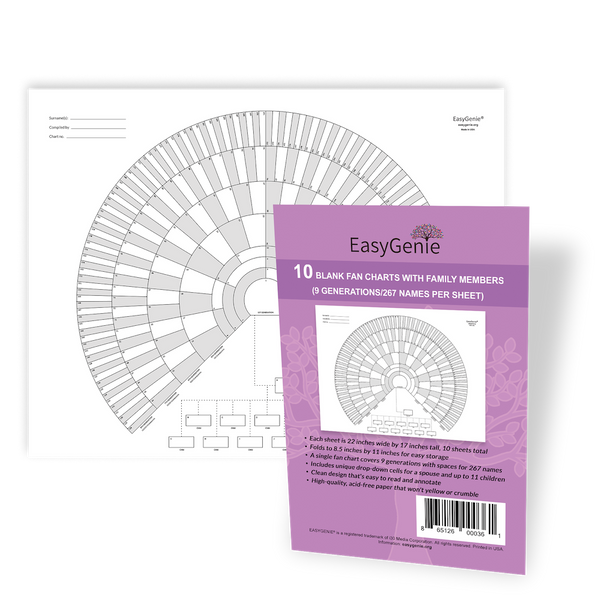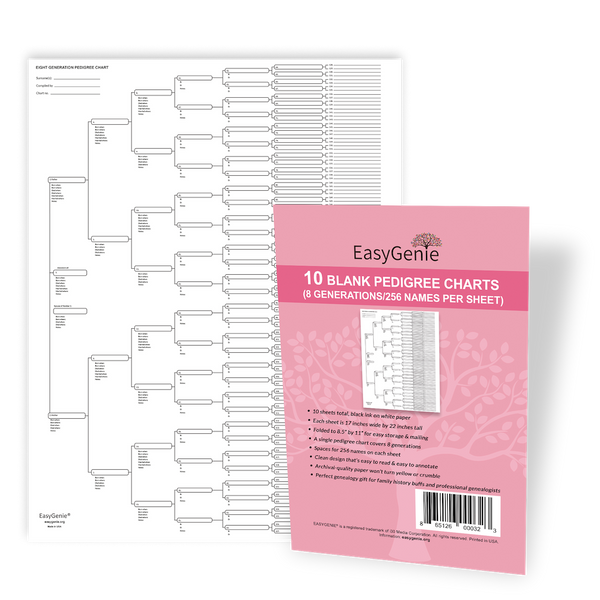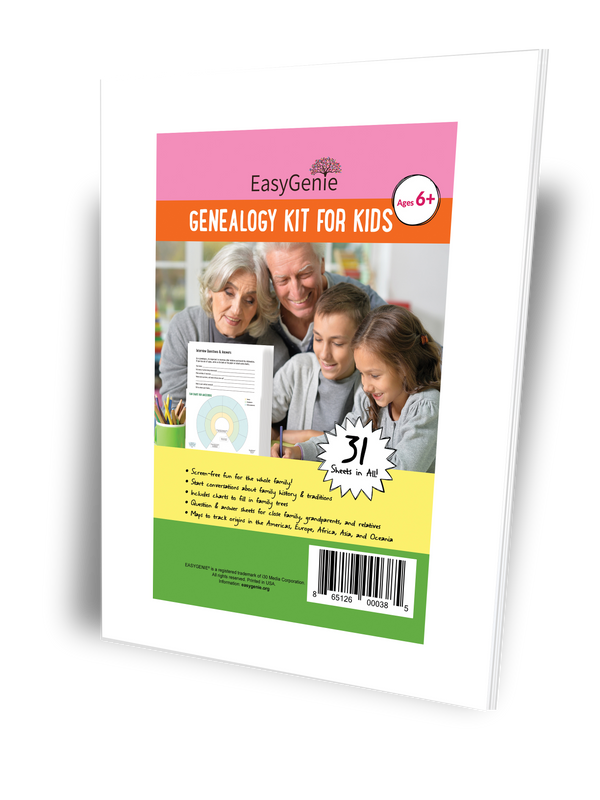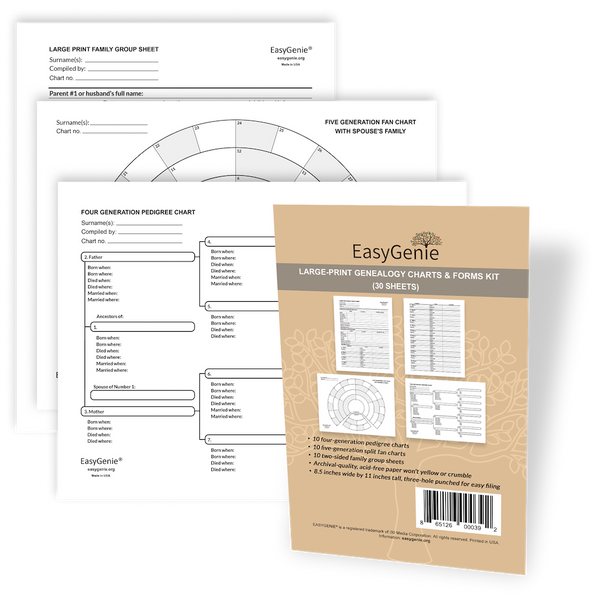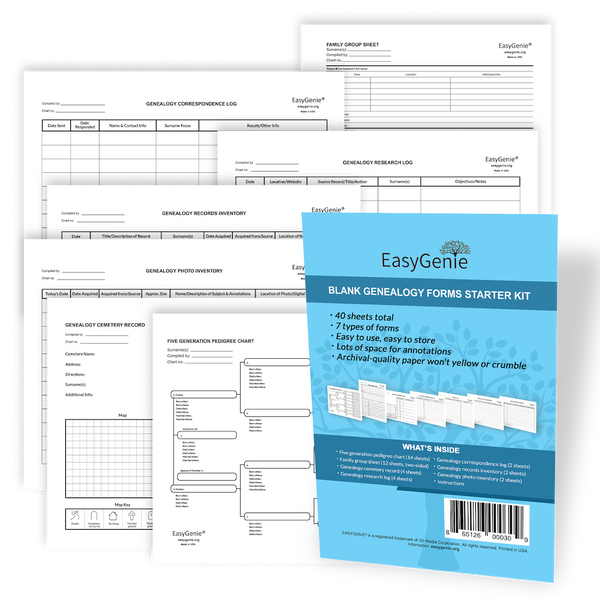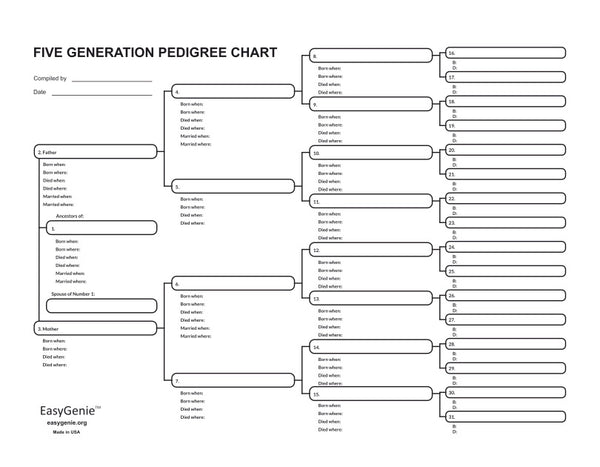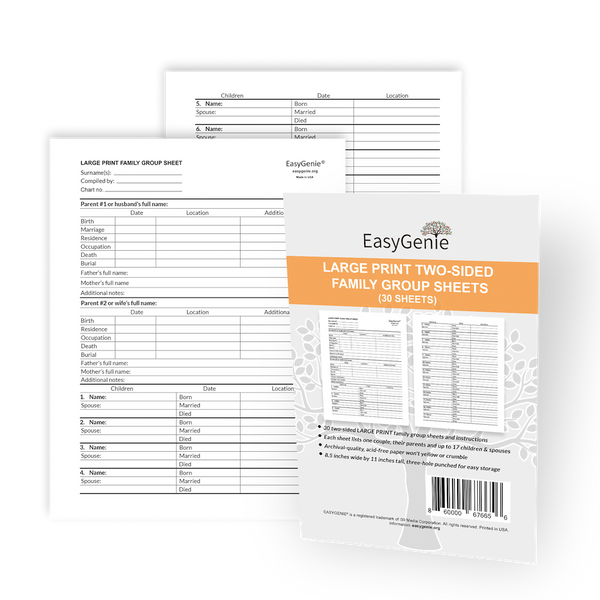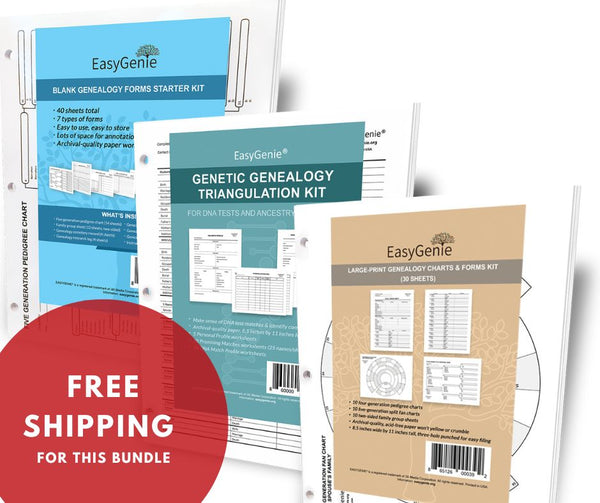#RootsTech 2019 recap, and why genealogists should use paper forms
Ian LamontThe EasyGenie team just got back from #RootsTech2019 in Salt Lake City. It was a ton of fun, but also a lot of work, from making travel arrangements to talking with many hundreds of attendees!
We were there to introduce the RootsTech community to our acid-free genealogy forms. It was also an opportunity to talk with genealogists of all skill levels.
Yesterday, we heard from a young lady whose dad used to track his unusual surname by calling people with the same name in phone books when he visited other cities. He actually met some distant relatives this way! While his genealogy journey started out with analog communications and paper forms, he has since expanded to the many advanced digital tools available to genealogists.
A few attendees at RootsTech asked us: Why even use paper forms, considering there are so many digital options?
Our answer:
Digital tools are great for capturing, sharing, and scaling large collections of genealogy data. But where they fall short is longevity.
What happens when your computer crashes, or your Ancestry.com subscription lapses? It's easy enough to say "store it in the cloud" or "we have a backup" but as many users of genealogical websites and software tools from previous decades know, such tools may themselves shut down or no longer be supported.
If your data is locked up or wiped clean, years of hard work may be lost forever.
We are not proposing that people transfer all of their data to paper forms. But paper forms printed on acid-free, heavy paper stock are perfect for recording core data and research notes that you can refer to for decades to come, can pass down to the next generation, or share with relatives who do not have access to Ancestry or other types of genealogy apps. We believe that the acid-free paper will last for at least 50 years if stored in a dry place. By comparison, there are very few digital file formats from 50 years ago that can still be opened.
According to professional researchers, it's possible that acid-free, archival-quality paper will last far longer. Quoting the Library of Congress website, "good quality paper stored in good conditions (cooler temperatures; 30-40% relative humidity) are able to last a long time -- even hundreds of years."
In summary, websites and apps are crucial for research, sharing, and organization of data. But archival-quality paper records have a place in the genealogical pantheon, too.
Hope to see you next year at RootsTech!

